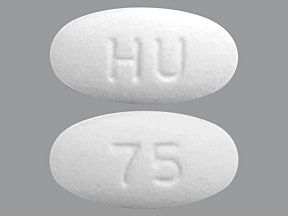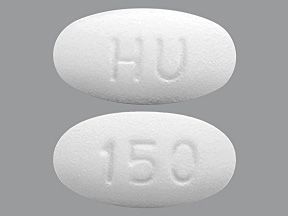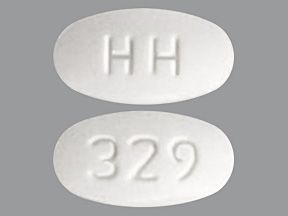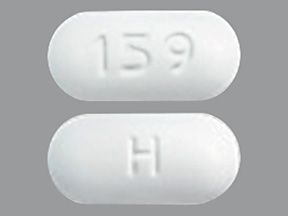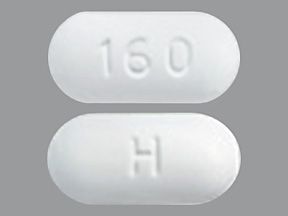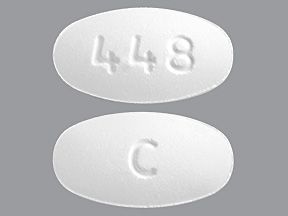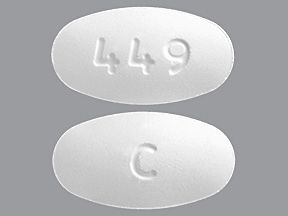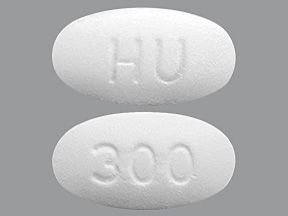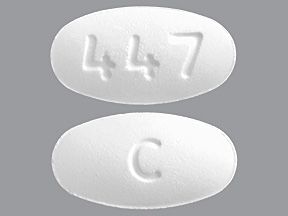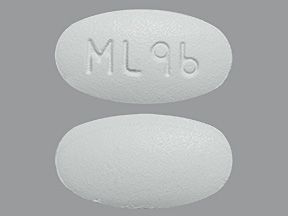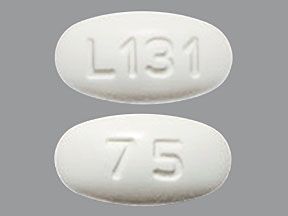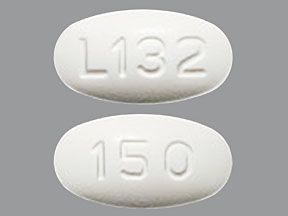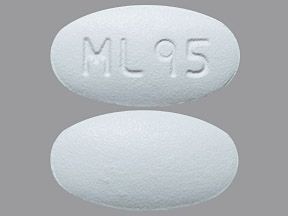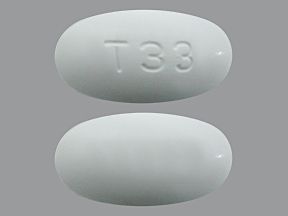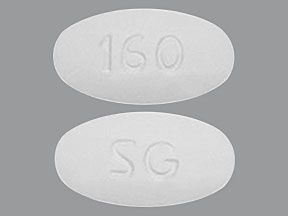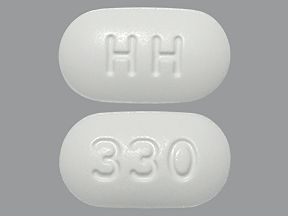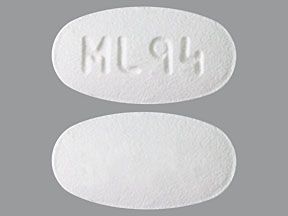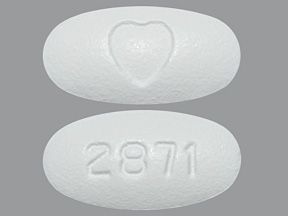We include products we think are useful for our readers. If you buy through links on this page, we may earn a small commission. Here’s our process.
Healthline only shows you brands and products that we stand behind.
Our team thoroughly researches and evaluates the recommendations we make on our site. To establish that the product manufacturers addressed safety and efficacy standards, we:- Evaluate ingredients and composition: Do they have the potential to cause harm?
- Fact-check all health claims: Do they align with the current body of scientific evidence?
- Assess the brand: Does it operate with integrity and adhere to industry best practices?
- Irbesartan oral tablet is available as a brand-name drug and a generic drug. Brand name: Avapro.
- Irbesartan comes only as a tablet you take by mouth.
- Irbesartan is used to lower your blood pressure. It’s also used to help your kidneys function better if you have diabetic nephropathy from type 2 diabetes.
FDA warning: Pregnancy
- This drug has a black box warning. This is the most serious warning from the Food and Drug Administration (FDA). A black box warning alerts doctors and patients about drug effects that may be dangerous.
- Don’t take this drug if you’re pregnant or plan to become pregnant. Irbesartan can harm or end your pregnancy. If you get pregnant while taking this drug, tell your doctor right away.
Other warnings
Irbesartan is a prescription drug. It comes as an oral tablet.
Irbesartan is available as the brand-name drug Avapro. It’s also available as a generic drug. Generic drugs usually cost less than the brand-name version. In some cases, they may not be available in every strength or form as the brand-name drug.
Irbesartan may be taken in combination with other blood pressure-lowering medications.
Why it’s used
Irbesartan is used to lower your blood pressure. It’s also used to help your kidneys function better if you have if you have diabetic nephropathy from type 2 diabetes.
How it works
Irbesartan belongs to a class of drugs called angiotensin receptor blockers (ARBs). A class of drugs is a group of medications that work in a similar way. These drugs are often used to treat similar conditions.
Irbesartan works by blocking the effect of a hormone called angiotensin. This makes your blood vessels relax more. It also allows your kidneys to get rid of extra water and salt. This helps lower your blood pressure, and helps improve your kidney function.
Irbesartan oral tablet doesn’t cause drowsiness, but it can cause other side effects.
More common side effects
The more common side effects that can occur with irbesartan include:
- diarrhea
- heartburn
- tiredness
- dizziness, especially when standing up after sitting or lying down
If these effects are mild, they may go away within a few days or a couple of weeks. If they’re more severe or don’t go away, talk to your doctor or pharmacist.
Serious side effects
Call your doctor right away if you have serious side effects. Call 911 if your symptoms feel life-threatening or if you think you’re having a medical emergency. Serious side effects and their symptoms can include the following:
- Chest pain
- Very severe headache
- Allergic reaction. Symptoms can include:
- hives
- trouble breathing
Disclaimer: Our goal is to provide you with the most relevant and current information. However, because drugs affect each person differently, we cannot guarantee that this information includes all possible side effects. This information is not a substitute for medical advice. Always discuss possible side effects with a healthcare provider who knows your medical history.
Irbesartan oral tablet can interact with other medications, vitamins, or herbs you may be taking. An interaction is when a substance changes the way a drug works. This can be harmful or prevent the drug from working well.
To help avoid interactions, your doctor should manage all of your medications carefully. Be sure to tell your doctor about all medications, vitamins, or herbs you’re taking. To find out how this drug might interact with something else you’re taking, talk to your doctor or pharmacist.
Examples of drugs that can cause interactions with irbesartan are listed below.
Blood pressure drugs
Taking other blood pressure-lowering drugs with irbesartan can increase your risk of high potassium levels, kidney damage, and low blood pressure (hypotension).
Examples of these drugs include:
- aliskiren
- other angiotensin-receptor blockers (ARBs), such as:
- valsartan
- candesartan
- losartan
- angiotensin-converting enzyme (ACE) inhibitors, such as:
- lisinopril
- enalapril
- captopril
You shouldn’t use irbesartan with aliskiren if you have diabetes or severely decreased kidney function.
Lithium
Taking lithium with irbesartan may increase the levels of lithium in your body. This may cause dangerous effects from lithium.
Nonsteroidal anti-inflammatory drugs
Using irbesartan with nonsteroidal anti-inflammatory drugs (NSAIDs) can increase your risk of kidney damage. Your risk may be higher if you’re a senior, take a diuretic, are dehydrated, or already have poor kidney function. Irbesartan may also not work as well when taken with NSAIDs.
Examples of NSAIDs include:
- ibuprofen
- naproxen
Drugs that increase potassium levels
Taking these medications with irbesartan can increase your potassium levels even more. Examples of these drugs include:
- potassium-sparing diuretics, such as:
- amiloride
- triamterene
- potassium supplements
- salt substitutes that contain potassium
Disclaimer: Our goal is to provide you with the most relevant and current information. However, because drugs interact differently in each person, we cannot guarantee that this information includes all possible interactions. This information is not a substitute for medical advice. Always speak with your healthcare provider about possible interactions with all prescription drugs, vitamins, herbs and supplements, and over-the-counter drugs that you are taking.
This drug comes with several warnings.
Allergy warning
Irbesartan can cause a severe allergic reaction. Symptoms include:
- trouble breathing
- swelling of your throat or tongue
- hives
If you develop these symptoms, call 911 or go to the nearest emergency room.
Don’t take this drug again if you’ve ever had an allergic reaction to it. Taking it again could be fatal (cause death).
Warnings for people with certain health conditions
For people with an active renin-angiotensin system: If you have heart failure or a condition called renal artery stenosis, your kidneys depend on the renin-angiotensin system. Using irbesartan can worsen your kidney function.
For people at risk of low blood pressure: If you take a diuretic or are on dialysis, taking irbesartan may cause very low blood pressure.
Warnings for other groups
For pregnant women: Irbesartan is a category D pregnancy drug. That means two things:
- Studies show a risk of adverse effects to the fetus when the mother takes the drug.
- The benefits of taking the drug during pregnancy may outweigh the potential risks in certain cases.
This drug may harm or end your pregnancy. Tell your doctor if you’re pregnant or plan to become pregnant. Irbesartan should only be used during pregnancy if the potential benefit justifies the potential risk.
If you become pregnant while taking this drug, call your doctor right away.
For women who are breastfeeding: It isn’t known if irbesartan passes into breast milk. If it does, it may cause serious effects in a child who is breastfed. You and your doctor may need to decide if you’ll take this drug or breastfeed your child.
For seniors: Older adults may process drugs more slowly. A typical adult dosage may cause levels of this drug to be higher than normal in your body. If you’re a senior, you may need a lower dosage or a different treatment schedule.
For children: This drug shouldn’t be used in children younger than 18 years.
All possible dosages and forms may not be included here. Your dose, form, and how often you take it will depend on:
- your age
- the condition being treated
- the severity of your condition
- other medical conditions you have
- how you react to the first dose
Drug forms and strengths
Generic: Irbesartan
- Form: oral tablet
- Strengths: 75 mg, 150 mg, 300 mg
Brand: Avapro
- Form: oral tablet
- Strengths: 75 mg, 150 mg, 300 mg
Dosage for high blood pressure (hypertension)
Adult dosage (ages 18–64 years)
- Typical starting dosage: 150 mg, taken once per day.
- Dosage increases: Your doctor may increase your dosage to 300 mg per day.
Child dosage (ages 0–17 years)
This drug hasn’t been studied in children under the age of 6 years. Although it was studied in younger children, it shouldn’t be used in people younger than 18 years.
Senior dosage (ages 65 years and older)
Older adults may process drugs more slowly. A typical adult dosage may cause levels of this drug to be higher than normal. If you’re a senior, you may need a lower dosage or a different treatment schedule.
Dosage for diabetic nephropathy in type 2 diabetes
Adult dosage (ages 18–64 years)
Typical dosage: 300 mg, taken once per day.
Child dosage (ages 0–17 years)
This drug hasn’t been studied in children under the age of 6 years, and it shouldn’t be used in people younger than 18 years.
Senior dosage (ages 65 years and older)
Older adults may process drugs more slowly. A typical adult dosage may cause levels of this drug to be higher than normal. If you’re a senior, you may need a lower dosage or a different treatment schedule.
Special dosage considerations
For people who take a diuretic or are on dialysis: If you take a water pill or need dialysis for kidney problems, your doctor may start you at a lower dosage of 75 mg once per day.
Disclaimer: Our goal is to provide you with the most relevant and current information. However, because drugs affect each person differently, we cannot guarantee that this list includes all possible dosages. This information is not a substitute for medical advice. Always speak with your doctor or pharmacist about dosages that are right for you.
Irbesartan oral tablet is used for long-term treatment. It comes with serious risks if you don’t take it as prescribed.
If you stop taking the drug or don’t take it at all:
For high blood pressure: Your blood pressure will stay high. This will increase your risk of having a stroke or heart attack.
For diabetic nephropathy: Your kidney function won’t improve.
Don’t stop taking irbesartan without talking to your doctor. Stopping it suddenly can cause your blood pressure to spike. This may increase your risk of a heart attack or stroke.
If you miss doses or don’t take it on schedule: Your medication may not work as well or may stop working completely. For this drug to work well, a certain amount needs to be in your body at all times.
If you take too much: If you take too much of this drug, you might have the following symptoms:
- feeling like your heart is pounding
- weakness
- dizziness
If you think you’ve taken too much of this drug, call your doctor or seek guidance from the American Association of Poison Control Centers at 1-800-222-1222 or through their online tool. But if your symptoms are severe, call 911 or go to the nearest emergency room right away.
What to do if you miss a dose: If you forget to take your dose, take it as soon as you remember. If it’s just a few hours until the time for your next dose, wait and only take one dose at that time.
Never try to catch up by taking two doses at once. This could cause dangerous side effects.
How to tell if the drug is working:
For high blood pressure: Your blood pressure should be lower.
For diabetic nephropathy: You might not be able to tell if this drug is helping your kidney function. However, your doctor will do tests to make sure the drug is working.
Keep these considerations in mind if your doctor prescribes irbesartan for you.
General
- You can take irbesartan with or without food.
- You can cut or crush the tablet.
Storage
- Store irbesartan at room temperature from 68°F to 77°F (20°C to 25°C).
- Don’t freeze irbesartan.
- Keep this drug away from light.
- Don’t store this medication in moist or damp areas, such as bathrooms.
Refills
A prescription for this medication is refillable. You should not need a new prescription for this medication to be refilled. Your doctor will write the number of refills authorized on your prescription.
Travel
When traveling with your medication:
- Always carry your medication with you. When flying, never put it into a checked bag. Keep it in your carry-on bag.
- Don’t worry about airport X-ray machines. They can’t harm your medication.
- You may need to show airport staff the pharmacy label for your medication. Always carry the original prescription-labeled container with you.
- Don’t put this medication in your car’s glove compartment or leave it in the car. Be sure to avoid doing this when the weather is very hot or very cold.
Self-management
Your doctor may ask you to check your blood pressure at home. You should keep a log with the date, time of day, and your blood pressure readings. Bring this log with you to your doctor appointments.
You may need to buy a blood pressure monitor to check your blood pressure at home.
Clinical monitoring
During treatment with this drug, your doctor may check your:
- potassium levels
- kidney function
- blood pressure
Hidden costs
You may need to purchase a home blood pressure monitor to keep track of your blood pressure. These are available at most pharmacies and online.
There are other drugs available to treat your condition. Some may be better suited for you than others. Talk to your doctor about other drug options that may work for you.
Disclaimer: Healthline has made every effort to make certain that all information is factually correct, comprehensive, and up-to-date. However, this article should not be used as a substitute for the knowledge and expertise of a licensed healthcare professional. You should always consult your doctor or other healthcare professional before taking any medication. The drug information contained herein is subject to change and is not intended to cover all possible uses, directions, precautions, warnings, drug interactions, allergic reactions, or adverse effects. The absence of warnings or other information for a given drug does not indicate that the drug or drug combination is safe, effective, or appropriate for all patients or all specific uses.

